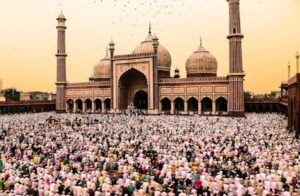Zakat: The Pillar of Islamic Philanthropy Guide 2024
Zakat, Islamic Charity, Zakat Eligibility, Zakat Calculation, Almsgiving in Islam, Zakat Benefits
Introduction:
Zakat, one of the Five Pillars of Islam, is not just a religious obligation but a transformative force in the Muslim community. It embodies the spirit of giving and plays a crucial role in promoting social equality and supporting those in need. This guide will explore the significance of Zakat, its calculation methods, and its far-reaching benefits.

1 . The History of Zakat
The history of Zakat is deeply rooted in the Islamic tradition and is one of the Five Pillars of Islam, signifying its importance in the Muslim faith. Zakat is a form of almsgiving and is considered a religious obligation for Muslims who meet the necessary criteria for wealth. It is designed to be a means to purify one’s income and wealth from impurities related to its acquisition.
2 . Origins and Development: It has been a part of Islamic law since the time of the Prophet Muhammad. Initially, in Makkah, Zakat payments were voluntary and based on individual conscience. However, after the Prophet Muhammad صلی اللہ علیہ و آلہ وسلم migrated to Madinah, Zakat became a formal obligation (Fard). The Quranic verses revealed in Madinah provided clear directives for the payment of Zakat, and the Prophet Muhammad صلی اللہ علیہ و آلہ وسلم began to send out workers to collect and distribute Zakat.
3 . Zakat before Islam: The concept of Zakat predates Islam. It was known among the followers of the religion of Ibrahim (Abraham) and was continued by the Prophet Muhammad صلی اللہ علیہ و آلہ وسلم with necessary reforms. The Quran provides examples of Zakat being imposed on previous prophets, including Isma’il (Ishmael), the progeny of Ishaaq (Isaac) Yaqub (Jacob), and Isa (Jesus).
4 . Historical Significance: Zakat has played a significant role throughout Islamic history, including during the Ridda wars, which were a series of political and religious uprisings. The collection and distribution of Zakat have also been points of contention and discussion among Islamic scholars, with varying interpretations and practices emerging over time.
5 . Modern Practice: In contemporary times, Zakat remains a vital aspect of Islamic worship and social welfare. In some Muslim-majority countries, Zakat contributions are voluntary, while in others, such as Libya, Malaysia, Pakistan, Saudi Arabia, Sudan, and Yemen, it is mandated and collected by the state.
The practice of Zakat reflects the Islamic values of charity, social justice, and community support, aiming to alleviate poverty and redistribute wealth within society12345.
6 .Understanding Zakat
Zakat is mandated as an act of worship and a means to purify one’s wealth. It is due to various forms of wealth, including savings, investments, and even livestock, provided they meet specific criteria known as Nisab. The practice of Zakat fosters a sense of responsibility and compassion among Muslims, urging them to think beyond their personal needs.
7 .What is Sahib-un-Nisab?
“Sahib-un-Nisab” refers to a person who possesses wealth above a certain threshold, known as the Nisab. In the context of Zakat, a Muslim becomes Sahib-un-Nisab when their wealth exceeds the minimum amount required to be eligible to pay Zakat. This amount is calculated based on the current value of either 87.48 grams of gold or 612.36 grams of silver. If a person’s wealth is equal to or exceeds the value of this amount for a complete lunar year, they are obligated to pay Zakat12345.
8 . Zakat and Sadaqah Explained
- Zakat:
- Obligatory: Zakat is a mandatory act of charity that is one of the Five Pillars of Islam.
- Fixed Percentage: It is a specific amount, usually 2.5% of a Muslim’s wealth that has been held for a full lunar year.
- Eligibility: Only certain individuals who meet the Nisab threshold are required to pay Zakat.
- Designated Beneficiaries: There are specific categories of people who are eligible to receive Zakat, as outlined in Islamic law12.
- Sadaqah:
- Voluntary: Sadaqah is a non-obligatory charity that can be given at any time and in any amount.
- Flexibility: There is no fixed amount or percentage for Sadaqah; it is at the discretion of the individual.
- Broader Recipients: Sadaqah can be given to anyone in need and is not limited to the specific categories that apply to Zakat.
- Personal Choice: Sadaqah is seen as a personal act of kindness and a way to earn blessings from Allah345.
In essence, while Zakat is a compulsory act tied to the financial status of a Muslim, Sadaqah is a voluntary act of kindness that reflects personal generosity and can be performed by anyone, regardless of their financial situation. Zakat serves as a systematic form of wealth redistribution within the Muslim community, whereas Sadaqah is more about personal charity and can be extended to anyone in need, at any time, and in any form.
9 . Calculating Zakat 
The calculation of Zakat is a meticulous process that ensures fairness and transparency. It involves determining the Nisab threshold, which is equivalent to the value of 85 grams of gold or 595 grams of silver. Any wealth exceeding this threshold is subject to a 2.5% Zakat rate. This section can delve into the intricacies of Zakat calculation, offering readers practical advice on fulfilling this pillar of Islam.
10 . The Impact of Zakat
Zakat’s impact is profound and multifaceted. It not only aids the underprivileged but also circulates wealth within the community, reducing inequality. By purifying the giver’s wealth, Zakat also purifies the heart, encouraging generosity and detachment from material

11 . Maximizing the impact of your Zakat
- Intention and Purification: Approach Zakat with the right intention, as a means to purify your wealth and soul. Reflect on the spiritual significance of Zakat and its role in enhancing your personal growth1.
- Timely Payment: Pay your Zakat promptly. The timely distribution of Zakat funds ensures that the needs of the beneficiaries are met when they need it most1.
- Accurate Calculation: Ensure you calculate your Zakat accurately. Consider all assets subject to Zakat and seek knowledge or assistance if you’re unsure about the calculation process1.
- Identify the Needy: Direct your Zakat to those who are most in need. Prioritize individuals or communities that are in dire situations, such as refugees, the impoverished, or those affected by natural disasters2.
- Empowerment Projects: Invest in sustainable development projects that empower the recipients, such as education, healthcare, or livelihood programs. This approach helps break the cycle of poverty and fosters long-term self-reliance3.
- Local and Global Balance: While it’s important to support local communities, also consider the global needs. Balancing your Zakat distribution between local and international causes can broaden its impact3.
- Transparency and Trust: Choose reputable organizations to distribute your Zakat. Ensure they are transparent about their processes and that the funds are reaching the intended recipients1.
- Follow-Up: After distributing your Zakat, follow up on the projects or individuals you’ve supported. This can provide insight into the effectiveness of your contributions and guide future decisions3.
By implementing these practices, you can enhance the effectiveness of your Zakat and fulfill this important pillar of Islam with confidence and wisdom.
12 . Eight specific categories of people as designated by God in the Quran. These categories are:
- The Poor (Al-Fuqara’): Those who have insufficient means to meet their basic needs.
- The Needy (Al-Masakin): Individuals who are unable to provide for themselves and their families.
- Zakat Administrators: Those appointed to collect and distribute Zakat.
- Those Whose Hearts Are to Be Reconciled: New Muslims and those who are called towards Islam.
- Those in Bondage: This includes slaves and captives who need funds for their freedom.
- The Debt-Ridden: People burdened by debts incurred in good faith and unable to pay them off.
- In the Cause of Allah (Fi Sabilillah): This refers to those who are working in the path of God, which can include various forms of jihad, including educational and social welfare projects.
- The Wayfarer (Ibn Sabil): Travelers who are in need of assistance while on a journey123.
These categories ensure that Zakat serves as a comprehensive social welfare system, addressing various needs within the community.
13 . Common Misconceptions about Zakat
- Zakat is only payable during Ramadan: While many choose to pay Zakat during Ramadan due to the belief in increased rewards, Zakat is actually due one lunar year after a person becomes Sahib-un-Nisab (owner of the minimum amount of wealth that makes Zakat payable), regardless of the month1.
- Zakat purifies all wealth, including interest earned: Zakat cannot purify wealth that has been earned through haram (forbidden) means. If haram money is donated as Zakat, it is not considered valid, and the individual will not be rewarded for it1.
- Zakat is only payable on gold: Zakat is due on a variety of wealth forms, not just gold. This includes silver, cash, business stock, shares, pensions, property (other than personal residence), and money lent to others1.
- The husband must pay Zakat for his wife’s jewelry: Zakat is an individual obligation. If the jewelry belongs to the wife and she meets the Nisab threshold, she is responsible for paying Zakat on it herself1.
- Zakat is a form of tax: Some people mistakenly view Zakat as a tax, but it is, in fact, a spiritual obligation with significant religious importance. It is a means of worship and self-purification, not just a financial contribution2.
Understanding these misconceptions can help ensure that Zakat is calculated and distributed correctly, fulfilling its intended role in Islamic practice and society.
Ramadan Fasting 2024: Who Is Exempt and When to Relax the Rules


